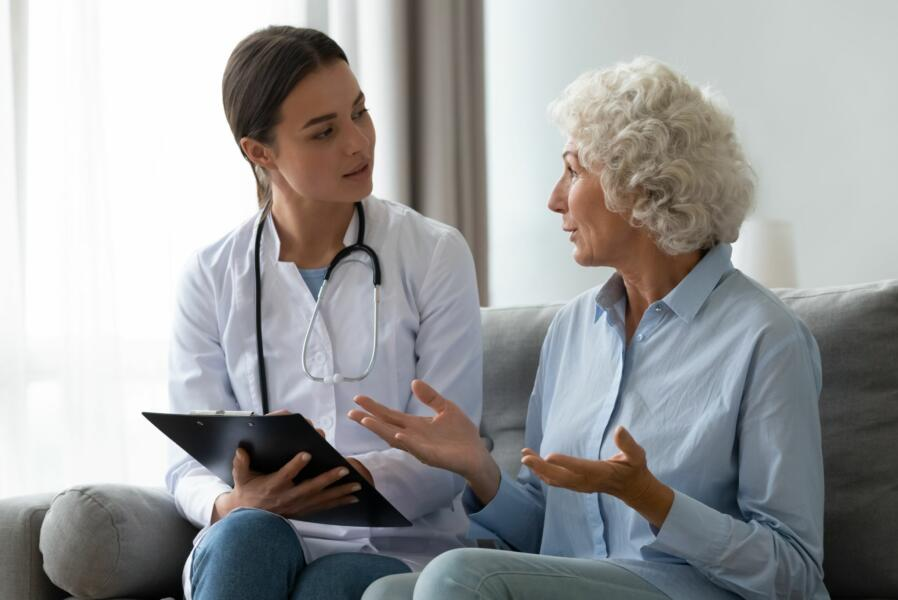If you ever look into the classroom at a Montessori school, you would see children of various ages moving around and talking, free to explore multiple activities. These activities boost the learning and development process, but there are no instructions about what to do and when.
A Montessori school is a combination of materials for hands-on learning, and they encourage kids to focus on activities according to their interests. They are opposite to traditional schools that prefer a structured and scheduled curriculum. Montessori schools see children as explorers with a variety of interests, acknowledging that not all children learn in the same method or at the same time montessori school near me.
Christiane Leitinger, director of enrollment management at the Montessori School of Evergreen in Colorado, states, “Parents may expect their children to get a customized education oriented toward achieving the best outcomes for the child.”
Jill Morgenstern, a Texas teacher and writer who attended a Montessori school and selected the same for her child, says, “She grasped the requirements of children when child development wasn’t part and parcel of schools in general.” “It’s incredible how much she was ahead of her time.”
Teachers as Mentors
One of the foundations of Montessori classrooms is respect for children’s development. Students who have mastered particular skills can skip to the next grade level, while others who aren’t ready can take their time. Montessori education emphasizes the importance of giving children choices what is a montessori school.
“One important distinction is that children have the freedom to choose their activities and classes, which is not possible in a regular school setting,” Morgenstern explains.
In Montessori classrooms, teachers frequently serve as guides and observers. Depending on what they see, parents may interfere to help or take a step back to observe a child’s abilities to solve an issue. Montessori proponents argue that enabling children to follow their curiosity and take charge of their education leads to greater independence at a young age.
“Parents may also expect their children to develop a passion for learning, as evidenced by their eagerness to experiment, research, and figure things out,” says Leitinger.
Leitinger gives the example of a kindergarten arithmetic student who completed all of the scope and sequence assignments. Instead of delaying his education, the teacher retrieved first-grade arithmetic lessons from the elementary school, and the youngster continued.
This same concept can be used in higher grades to take pupils outside the classroom to learn actual life skills. Students in grades 6-8 at Leitinger’s school can participate in internships to pick a skill they wish to acquire and locate a mentor to assist them.
“A lot of what they work on is project management, so they can finish the task in the time allotted,” she explains community montessori school tampa.
Montessori through the Eyes of a Parent
Sarah Thorson, whose 5-year-old son is a student at The Montessori School of Evergreen, thinks that education fosters independence chesapeake montessori school.
“Giving the kids the freedom to decide which subject they want to focus on has helped him build his independence and happiness with what he learns,” Thorson says.
Thorson and her husband agreed to relocate her son to a group of children in a somewhat younger school after teachers identified that he had some learning issues, giving him the lessons he needed and the gift of time. “I was pleased that they recognized it immediately away, and I was overjoyed that he could simply be in a school that made sense to him,” she says. “We’ve noticed a significant increase in his self-assurance.”
According to Katie Lewis, an associate professor of education at York College of Pennsylvania, this student-led attitude is not a free-for-all. In a Montessori classroom, there is still structure city montessori school.
“Through structured experiences, students take control of their learning,” she explains. “The teachers offer the child the materials and many activities, but then let them choose which activity they want to spend their time on until they understand the lesson.”
The Benefits and Drawbacks of Montessori Schools
While not all schools follow the Montessori method, in the same manner, parents and educators agree that there are several significant benefits to Montessori education.
Curriculum. A Montessori school’s curriculum progresses from the concrete to the abstract. To give an example, Lewis points out how difficult it is for adults to explain why 3 x 4 = 12. Hands-on learning with manipulatives clarifies the topic significantly. “When arithmetic training starts with real things, where kids can manipulate the objects and spend as much time as they want to learn the subject,” Lewis adds, “they can answer the ‘why’ questions and better understand.” “It’s because of this that the child is ready to go on to abstract concepts.”
Ownership by students. In the classroom, kids have a sense of ownership. According to Thorson, when students actively participate in problem-solving, a classroom culture emerges in which friends who require assistance are easily identified. She writes, “I watched as a child spilled some goods in a school of 4- to 6-year-olds.” “These kids all stopped what they were doing, went over to help clean it up, and then went back to their normal activities.”
Montessori education does, however, have certain negatives in specific circumstances.
Consider the following scenario:
Accessibility. One significant disadvantage is that Montessori education is not available to all children. While some communities have public Montessori schools, most are tuition-based private schools.
Suitable for educational purposes. Montessori education is not appropriate for all children. Children with behavioral challenges who thrive with a lot of structure could struggle. According to Leitinger, not every youngster can appropriately use the independence provided in a Montessori classroom. Most students, on the other hand, adjust well.
“They perform well in Montessori if they are curious, open to learning, open-hearted, and enthusiastic,” she explains.











